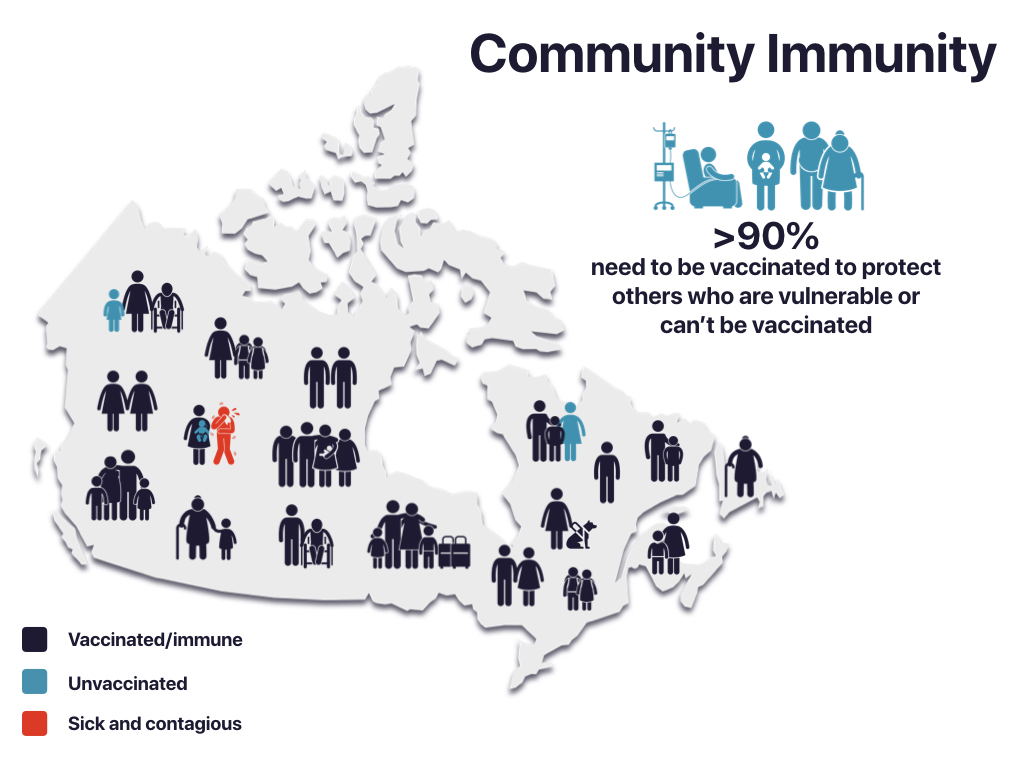Community Immunity
Community immunity, also known as herd immunity, is a concept referring to “protection from contagious disease that an individual benefits from as a result of living in a community where a critical number of people are vaccinated” (Boyd, 2016, para 2). This means that vaccination provides protection to the vaccinated person and also the whole community. In general, more than 90% of the population needs to be immune in order to protect those who are not eligible to be vaccinated; however, the level of herd protection required also depends on the disease. For example, contagious diseases such as measles, which is spread through the air, requires more than 95% protection for community immunity. See Image 1.2 illustrating community immunity through the visual of ‘group protection’ that is acquired when more than 90% of the population is immunized. Video Clip 1.2 explains community immunity in further detail.

Community immunity makes it more difficult for contagious disease to enter and spread across a population, thereby significantly reducing the chances of an outbreak. It is important as it affords some protection for vulnerable people who cannot receive vaccines or do not have an effective immune response to certain vaccines. Certain people cannot receive vaccines, including infants, pregnant people, people with immuno-compromising conditions, people on immunosuppressants, and other vulnerable groups.
Video Clip 1.2: “Herd Immunity and Immunizations” by North Carolina School of Science and Mathematics. CC-BY-NC-SA

